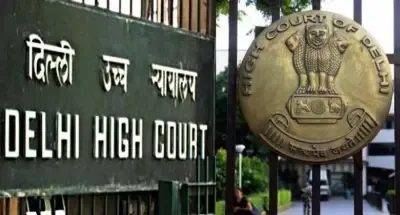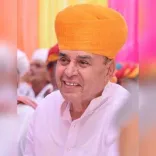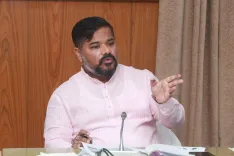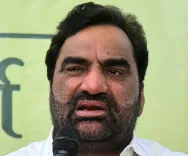Why Did the Delhi HC Deny Interim Maintenance to a Retired Teacher?

Synopsis
Key Takeaways
- Delhi High Court's ruling emphasizes self-sufficiency.
- Interim maintenance requires proof of financial need.
- Long-term separation can influence maintenance claims.
- Judicial interpretation balances support and burden.
- Living arrangements can affect financial assessments.
New Delhi, Aug 6 (NationPress) The Delhi High Court has rejected an appeal from a 70-year-old retired educator who sought interim financial support from her estranged husband, emphasizing that she has adequate resources to sustain herself.
A Bench comprising Justices Anil Kshetarpal and Harish Vaidyanathan Shankar upheld the Family Court's ruling from February 8, 2023, which denied the woman's request for Rs 60,000 monthly interim maintenance and Rs 1 lakh in litigation costs under Section 24 of the Hindu Marriage Act, 1955.
Justice Kshetarpal remarked that "the appellant (wife) possesses enough income to support herself, thus the Family Court was correct in rejecting her application under Section 24 of the Hindu Marriage Act."
The Court noted that interim maintenance is intended to assist a spouse who genuinely cannot support themselves during marital disputes, rather than being considered an "automatic entitlement."
The appellant, Yashwani Verma, entered into marriage with the respondent, Virender Verma, in 1978, but they have been living apart since 1987.
Despite both parties filing for divorce by mutual agreement in 2003, the appellant later retracted her consent.
In 2021, she filed a new petition in Family Court, claiming that her husband had entered into a second marriage while their marriage was still valid, and requested a declaration that the subsequent marriage is null and void.
In her bid for interim maintenance, the appellant argued that she subsists on a pension of approximately Rs 2,000 per month and lacks significant income.
Conversely, the husband claimed that she earns roughly Rs 40,000 monthly through private tutoring, owns a house, and has proceeds from a Life Insurance Corporation (LIC) policy.
The respondent-husband stated that he has been out of work since 2017 due to the collapse of Reliance Communication, which deprived him of retirement benefits and pension.
At 73 years old, he asserted that he lives with his brother and relies on loans—Rs 10 lakh from his brother and Rs 13 lakh from a friend—to cover medical expenses.
In its ruling, the Delhi High Court pointed out that the couple has been separated for over thirty years without the appellant previously seeking maintenance.
The court suggested that her request for interim maintenance might be influenced by the alleged second marriage and recent property dealings.
"The appellant also lives with her two sons, both of whom seem to have stable jobs. It appears that she has sufficient financial resources and support available to her," the Bench noted.
The Justice Kshetarpal-led Bench further recognized the husband's financial difficulties, stating that "the respondent's financial woes, exacerbated by his advanced age and loss of post-retirement benefits, weigh heavily against imposing any additional financial obligations on him."
By dismissing the appellant's appeal based on her failure to prove "genuine financial incapacity," the Delhi High Court concluded, "In the absence of compelling evidence supporting the appellant's claim for interim maintenance, this Court believes that the respondent should not be burdened with the responsibility of providing interim support, especially given his own financial, physical, and emotional challenges."






